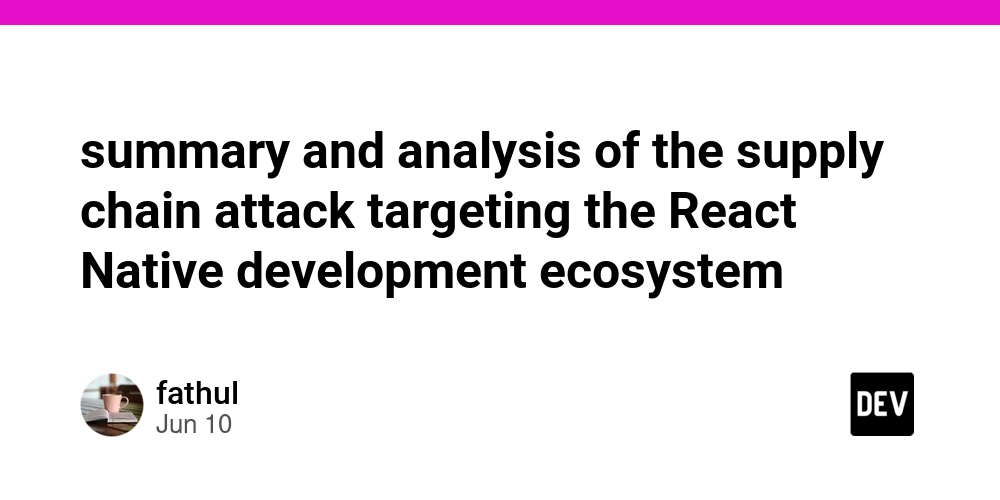
summary and analysis of the supply chain attack targeting the React Native development ecosystem
🧪 Incident: NPM Package Compromise
- Target: 16 popular npm packages maintained by the GlueStack project, widely used in React Native development
- Attack Type: Supply-chain malware injection
- Scale: Nearly 1 million downloads per week collectively
- Affected Packages: Not all disclosed yet, but include components of GlueStack CLI and DevOps plugins
*🐛 Identified Malicious Activity *
📦 Malicious code injection | Malicious script embedded into modules, triggered via postinstall hook during installation
🌐 C2 Communication | Sends user data (tokens, environment variables, system info) to external command & control servers
📁 Environment exfiltration | Exfiltrates .env files, API credentials, and build configuration details
🪤 Stealth mechanism | Obfuscated code that only activates in specific environments (e.g., CI/CD pipelines)
⚙️ Potential Impact
💻 Developer Projects | Web/mobile apps can be silently tampered with during build process
🔑 Credential Leakage | Leakage of AWS, Firebase, Supabase, GitHub tokens, etc.
🏢 Enterprise Systems | Supply-chain compromise in DevOps pipeline may cause systemic risks
📲 End Users | Compromised apps could reach app stores and consumer devices
🛡️ Security Recommendations for Developers
🔄 Immediate Actions:
- Audit project dependencies (especially GlueStack CLI, starter kits, plugins)
- Run npm audit and scan with tools like Socket.dev or Snyk
- Rotate .env files and API tokens if any affected packages were used
🔐 Long-term Prevention:
- Enforce lockfile auditing (package-lock.json, yarn.lock)
- Use npm ci to prevent unexpected dependency changes
- Isolate CI/CD environments from the internet during builds
- Enable 2FA on npm and GitHub accounts
🧠 Additional Notes
This attack resembles previous incidents such as:
- ua-parser-js compromise (2021)
- event-stream backdoor (2018)
Reinforces that developer tools themselves can be a prime attack vector
✅ Conclusion
The GlueStack package compromise underscores that the software supply chain is a critical attack surface. In modern DevOps and CI/CD environments, a single infected module can silently corrupt entire application ecosystems.
📎 Full article: PPHM News Article
https://pphmnews.com/articles/cyber-attacks/popular-dev-tools-hijacked-in-stealth-malware-campaign







